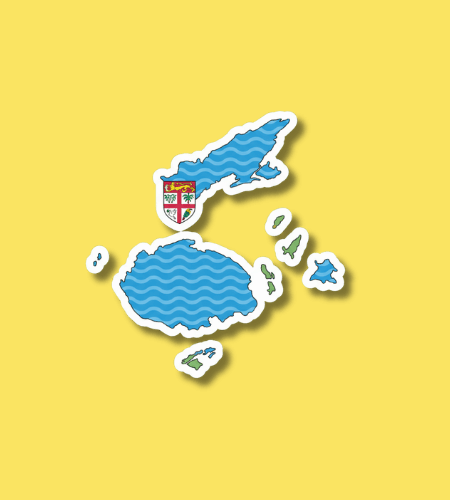Every year on October 10, Fiji Day is celebrated in Fiji, marking both the island nation’s independence and a nod to its colonial history.
Table of Contents
History of Fiji Day
Fiji Day commemorates two significant milestones in Fijian history. In 1874, on October 10, King Seru Epenisa Cakobau and other Fijian chiefs formally ceded authority of the islands to the British Crown—effectively beginning colonial rule. Nearly a century later, on exactly the same date—October 10, 1970—Fiji regained independence from Britain after 96 years of colonial governance.
Because of these two events sharing the same calendar date, October 10 has come to hold double resonance for the country—it represents both the beginning of colonial rule and the reclamation of sovereignty. Over time, the holiday has been extended into a larger period of celebration known as Fiji Week, culminating in Fiji Day itself.
Why this day matters
Fiji Day offers a moment of national reflection: honoring the struggles, compromises, and aspirations of past leaders, while reaffirming identity, unity, and cultural diversity in the present. Because the holiday unites commemorations of both subjugation and liberation, it invites conversations about how history shapes national consciousness, and how a nation moves forward acknowledging both hardship and hope.
The observance also emphasizes the richness of Fiji’s peoples, cultures, and spiritual traditions. During Fiji Week and especially on Fiji Day, myriad ceremonies, religious gatherings, and cultural performances underscore the importance of inclusion, mutual respect, and inter-ethnic harmony in a nation composed of many islands and communities.
- It honors both colonial transition and reclaimed independence
- It reinforces the meaning of national unity across diverse communities
- It encourages public remembrance of political and cultural journeys
- It creates space for reflection on past challenges and future goals
- It reinforces pride in Fiji’s cultural heritage and modern identity
How to Observe Fiji Day
In Fiji, the day is a public holiday: schools, offices, and many businesses close to allow citizens to partake in national events. The celebrations often begin earlier in Fiji Week, during which communities host cultural festivals, church services, dance, music, and storytelling. On the day itself, major ceremonies include speeches by national leaders, flag-raising, military displays, parades, and performances in the capital and across the islands.
If you’re observing from abroad, you might host a cultural evening: screen Fijian films or documentaries, play traditional music, serve Fijian dishes, or invite friends to learn about Fiji’s history and traditions. Sharing the story and symbolism of the day on social media or with local educational groups can help spread understanding beyond geographic boundaries.
- attend or watch Fiji Day ceremonies or livestreams
- explore Fijian culture via music, dance, film, cuisine
- prepare and share Fijian dishes or recipes
- read or share Fijian historical accounts or testimonies
- host an educational event or discussion about Fiji’s journey
Fiji Day Dates Table
| Year | Date | Day |
|---|---|---|
| 2026 | October 10 | Saturday |
| 2027 | October 10 | Sunday |
| 2028 | October 10 | Tuesday |
| 2029 | October 10 | Wednesday |
| 2030 | October 10 | Thursday |
Subscribe to our newsletter and never miss a holiday again!

